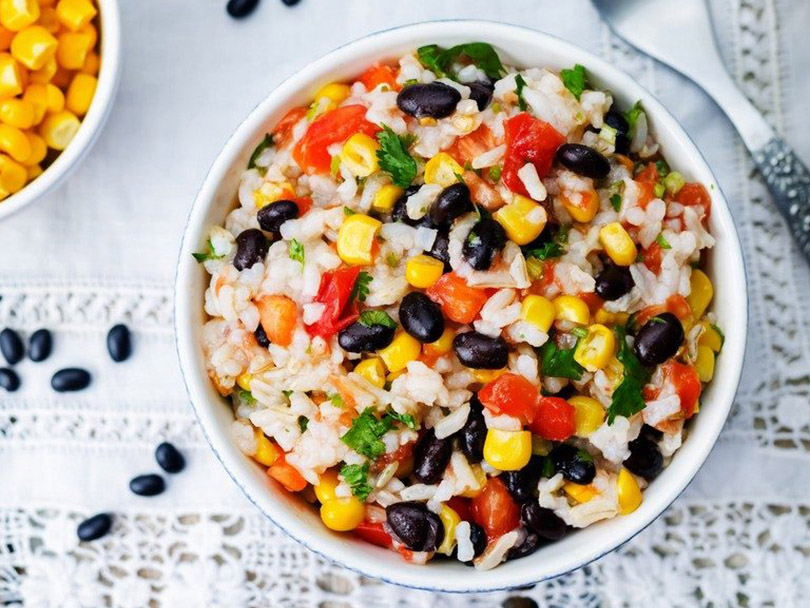diet
Problems with Unhealthy Habits and Laziness
Everyone, sooner or later, comes to the reality that we are not as many masters of our own will as we think. You suddenly find yourself doing something you decided to do differently, unhealthy habits are one of them and the mechanism was so powerful that you only realized when it was done. It happens with alcohol and cigarette but also with other seemingly more harmless things, like television, sugar or fast food. For some reason, it has reached a point where habit overcomes its ability to prevent action.
So if you’ve ever tried to fight those habits for discipline and control, you may not have been able to go very far. We know that we can not bear much trying to hold the bull by the horns. There comes a time when stress hits hard, frustration plays its part, and suddenly you want a cuddle, a little pleasure, just one more time.
I ended up finding this text from Erik Baker, who treats this problem in a very counterintuitive way and offers some interesting ways of deconstructing harmful habits.
The Lazy Way to End Bad Habits
Bad habits; we all have them. And we know them well. They are all we know we need to give up. But it is hard. In fact, we often feel helpless before them. And that does not mean we’re crazy…
Researchers at Duke University show that 40% of what we do every day does not come from decisions – it comes from habits. An article published in 2006 by a researcher at Duke University found that more than 40 percent of the actions people did on a daily basis did not come from deliberation, they were habits. Yes, you spent most of the day on autopilot. And changing bad habits is not just “cool.” If you want to be successful, studies show that habits do make a difference. People with a career in continuous ascension are 53% more likely to have healthy habits.
Via The 100 Simple Secrets of Successful People:
Comparing the careers of mid-level employees, researchers found that those who continue to grow in their careers are 53 percent more engaged in healthy living habits than those whose careers have stagnated. – Roberts and Friend, 1998
As we are on autopilot half of our day, the best would be for these routines to be positive. What then really works to get rid of bad habits? And that is not something tremendously difficult? Let’s see what we can do …
1) Change a single bad habit. Singular.
At some point, we all feel as though everything in our life is nothing more than a constellation of bad habits. We come from work, we are exhausted, and from then on it goes from one “should not be doing that” to the other, indefinitely.
It seems that it is necessary to change everything. And it’s necessary to do that for yesterday … No. Wrong. Bad. It does not work.
If we try to transform everything at the same time, this tends to be extremely destabilizing. In general, what you should do is think of change as a project. It’s a project that takes time … It may sound discouraging to say “if there are ten habits you want to change, it will take eight or ten months.” The truth is that if it is relevant behavior, just changing it will already have a huge impact on our lives. It pays to spend a month to change a single behavior, permanently. Benefits will be reaped for a decade.
You do not have to turn your life upside down. Destroy one bad habit, separate one month to do this, and then start working on another habit.
Okay, we started focusing on one thing. And how about starting with no stress?

2) Do not stop.
No matter what you should not be doing, you do not have to stop at once. (Does not that sound cool?) Do not try to reduce the habit, reduce the variation of the habit.
In other words, do not even try to quit smoking. Try to smoke the same number of cigarettes a day. Or just look at Facebook 90 times an hour, the way you’re used to.
This small effort at self-control leads to a decrease in bad habits over time, and this occurs unconsciously. When we want to change behavior, we must try to reduce variation in behavior, not behavior itself. It showed that smokers who were asked to smoke the same number of cigarettes every day gradually decreased their habit – even when explicitly told not to try smoking less.
Just paying attention to the numbers makes a lot of difference. Just looking at the calories on the labels proved to be more effective for weight loss than exercise:
Those who looked at the labels but did not exercise showed a slightly greater probability of weight loss than those who exercised but did not notice the labels. Also, those who only looked at the labels were more likely to lose weight when they added exercise to the routines than if they only exercised without looking at the labels.
At first, the best is not to say no to yourself. You just look at the numbers and continue to do what’s wrong – but consistently.
That is not difficult. No need to change. How else would it be possible to overcome bad habits without making any changes?
3) Do not change yourself. Change your world.
Every day under Instagram on my iPhone, and every day I delete Instagram from my iPhone. Do I have a problem? No. It’s a way of making sure I only look at Instagram once a day. The app does not sit there trying to get me to check it 600 times. And it’s pretty annoying to download it again. And this is a great secret to defeating bad habits.
Do not change yourself. Change the context. We turn to habits because of “triggers” in the environment. If we remove the triggers or make it more difficult to reach them, we are far less likely to engage in the behavior in question.
One of the great lessons that social science has given us in the last 40 years is that the environment makes a difference. If you go to a buffet and it is organized in a way, you eat one thing. If it is organized differently, you eat another. We think that we make decisions on our own all the time, but the environment influences us a lot. That’s why we need to think about how to change the environment.
That is, get away from tempting things. Do you watch a lot of TVs? Just remove the batteries from the remote control, this creates a delay of 20 seconds in the use of the device and thus dramatically reduces the amount of TV that is watched.
You do not have to change yourself right now. First, change the things around you. Pretty simple, isn’t it? Good. And let’s keep it that way. Is it necessary to force and demand all the time to eliminate bad habits? No. Neuroscience says the exact opposite…
4) Take it easy, boy.
What increases the chance of you indulging in bad habits? Stress. “Stress shuts off the prefrontal cortex.” Stress changes the dynamics of this internal conversation. It weakens the prefrontal cortex, and that part of your brain has no infinite resources. She cannot be forever vigilant, and then when you’re not paying attention, the striatum stays in that “let’s have a cookie, let’s have a beer.” Anything you can do to reduce stress helps you control of the prefrontal cortex over their habits.
Do not put pressure on yourself. Stay calm, and you will behave better.
Okay, the hints so far have been pretty easy. It’s time for some black belt methods. And we also need to undo some myths. How do you eliminate the same bad habits? It’s easy: not eliminating them.
5) Do not eliminate bad habits. Replace them.
Ironically, studies show that saying, “Never do this again” makes it even more likely that you will do it again.
It is not possible to eliminate bad habits, but it is possible to replace them. Do you want to stop playing junk food in your face?
When you feel the craving, throw some sugar-free chewing gum there. The “trigger” remains the same, and you still get a good reward, but what you are doing is replacing bad behavior with a good one.
From The Power of Habit: Why We Do What We Do in Life and Business:
We know that habits cannot be eradicated – they must instead be replaced. And we know that habits are more malleable when the Golden Rule of changing habits is exercised: if we keep the same trigger with the same reward, a new routine can be inserted in place of the old.
Recognize what causes misbehavior and then replace your usual response with a new one that provides a different (but still pleasurable) reward.
Is it getting too easy, the way I put things? Do not worry – I know you will encounter problems. Everybody finds. In fact, I know you already know more or less when you’re going to stick your foot in the jackfruit. So here are two words that will prevent you from fucking with everything…
6) “If” and “Then.”
Plans are great. And if you have a simple good, it is easier to resist temptations. When do you always end up falling into a bad habit? For example, “every time I sit on the couch, I end up spending hours on the internet.”
Okay, so let’s use two words now to make a tiny little plan:
If I sit on the couch, then I’ll read a book.
Of Nine Things That Successful People Do Differently:
That is called if-then planning, and it’s a compelling way of getting us to achieve goals. Well, hundreds of studies, from diets and exercises, to those talking about negotiation and study management, have shown that deciding beforehand when and where you will take action to achieve your goals (e.g. ” late, then I’ll make all the phone calls that have become necessary in the daytime “) can double or triple the odds of success.
Does it seem too simple to be true? Wrong.
The results were dramatic: a few weeks later, 91 percent of the planners themselves-then were still exercising regularly, while only 39 percent of those who did not plan to go on with the exercises! Similar results showed that other healthy behaviors, such as remembering monthly breast self-exams (100 percent of planners, 53 percent of non-planners), and uterine cancer screenings (92 percent of planners, 60 percent of women, not planners).
Two words. Big changes.
7) Forgive yourself.
Things are going to go wrong. But it’s alright. Know that old habits come back from time to time and learn to treat all failures as temporary problems, and not as reasons to give up.
So let’s say you say you’re not going to eat crackers. And you accidentally find yourself eating a cookie. It is not at that moment that your diet ends.
The diet ends when you eat a cookie and say “I give it up” – and then you eat the rest of the package.
What does science say we should do when we lose self-control or procrastinate? Forgive yourself and move on. Many studies show that self-criticism is consistently associated with less motivation and greater lack of self-control. It is also one of the major indicators of depression, which both ends with the power to “do” and with the power to “want.” In contrast to this, self-pity – being positive and kind to yourself, especially when facing stress and failure – is associated with greater motivation and better self-control.
In an attempt to improve one’s life, it is okay to stumble. It Takes time. You learn that.
Okay, we talked about a lot of things already. Let’s do a flashback and present the eighth tip – the funniest and easiest of all …
Summary. That is how one gets rid of bad habits:
One at a time. Defeat one bad habit a month, and then one year the change will be fantastic.
Do not stop. Account. Do not eliminate direct misbehavior. First get consistency in your no-shame.
Do not change yourself. Change your world. Rule of 20 seconds. Leave things in a way that makes it harder to practice bad habits.
Take it easy, boy. Stress causes temptation for bad things. Just relax that behavior improves.
Do not eliminate. Replace. If it is not possible to eliminate bad habits, you can replace them with others.
“If” and “So.” A straightforward plan to defeat temptation helps effectively defeat temptation.
Forgive yourself. Self-flagellation only causes even more bad behavior. Self-pity is what allows us to move forward.











